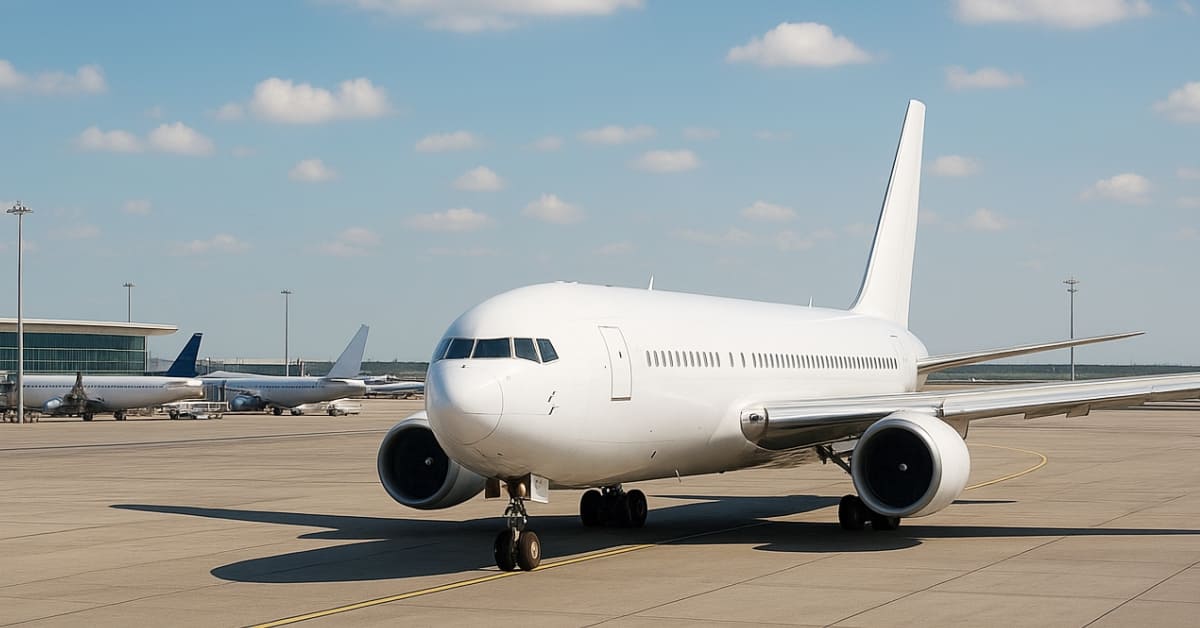Is the Aviation Industry Stable and Safe to Build a Long-Term Career In?
Posted on : 7 November, 2025 6:03 pm
The aviation sector has traditionally served as a beacon of innovation, international connectivity, and opportunity. As with any industry, it is subject to economic, political, technological, and environmental forces. If you are pondering a professional career in aviation, it is critical to consider the stability and long-term job security of working in this industry. This article examines several important factors in the stability of the aviation sector, risk potential, and the long-term sustainability of a professional career.
1. Overview of the Aviation Industry
1.1 A Global Economic Driver
Aviation is a significant player in the global economy. Aviation is supported by more than 65 million jobs worldwide and adds trillions to world GDP, as reported by the International Air Transport Association (IATA). It unites people, promotes world trade, and fuels tourism and so becomes a pillar of globalization.
1.2 Diverse Career Paths
Aviation is not only about flight attendants and pilots. It encompasses careers in:
- Aircraft maintenance and engineering
- Air traffic control
- Airport operations
- Aviation management
- Aerospace engineering
- Ground support and logistics
It is this diversity that provides professionals with many avenues and opportunity to specialize.
2. Stability of the Aviation Industry
2.1 Historical Volatility
Aviation, though necessary, is not immune to external shocks:
- 9/11 Attacks (2001): Contributed to a sharp decline in air travel worldwide, particularly in the U.S.
- Global Financial Crisis (2008-2009): Lower disposable income and air travel demand.
- COVID-19 Pandemic (2020): Biggest crisis in aviation history, leading to a near-complete suspension of passenger flights for several months.
- These crises indicate how the industry can prove highly responsive to world disruptions.
2.2 Post-Crisis Recovery
Despite history’s previous crises, aviation has delivered robust recovery trends:
- Following COVID-19, global air traffic recovered strongly by 2023-2024, particularly with the revival of leisure and business travel.
- Emerging economies such as India, Southeast Asia, and Africa are witnessing increased aviation growth.
- Aviation cargo and logistics industries also accelerated during the pandemic, offering a new employment option.
2.3 Technological Progress
The industry of aviation is at the pinnacle of advancement:
- Sustainable aviation fuels (SAFs)
- Electric and hybrid planes
- Autonomous equipment and AI in air traffic management
- These technologies are generating new job positions as well as enhancing operational efficiency and safety.
3. Is a Career in Aviation Safe?
3.1 High Safety Standards
Aviation is one of the world’s most regulated sectors. Aviation professionals go through rigorous training, certification, and recertification procedures. The culture of safety is ingrained deeply, particularly in technical and operational careers.
For instance:
Pilots receive ongoing simulator training.
Maintenance engineers adhere to rigid procedures and regulations, including those of FAA or EASA.
Air traffic controllers have to undergo tough tests and training.
This creates low rates of injury on the job, particularly in comparison to sectors such as construction or manufacturing.
3.2 Job Security Varies by Role
There is not the same job security in all positions within aviation:
- Pilots: Well-paid but sensitive to the health of airlines and changes in demand.
- Aircraft maintenance engineers: Continual demand even in a recession, because safety checks are always required.
- Airport operations and logistics workers: Typically secure because continuous cargo and infrastructure requirements exist.
3.3 Unionization and Benefits
Most air jobs are unionized, especially for cabin crew and pilots. This offers:
- Improved career protection
- Bargained compensation and benefits
- Pension schemes and health care
- These aspects improve career security and longevity.
4. International Demand and Future Outlook
4.1 Growth in Air Travel Forecasted
Boeing and Airbus projections indicate that air traffic passenger numbers will double by 2040 due to:
- Emerging economy’s growing middle class
- Globalization and urbanization
- Growing low-cost carrier (LCC) routes
- This translates to a higher need for pilots, technicians, air traffic controllers, and airline management professionals.
4.2 Skilled Professionals Shortages
There is an impending global shortage of aviation professionals:
Boeing forecasts a requirement for more than 600,000 new pilots and 600,000+ maintenance technicians by 2042.
Training infrastructure is lagging, opening up robust employment opportunities for those entering now.
4.3 Sustainable Aviation: A New Frontier
As there is more pressure on reducing carbon emissions, the industry is converting towards cleaner technologies:
- Short-haul flights by electric planes
- Research for hydrogen fuel
- Enhanced aerodynamics and efficiency of flight
- Such a change is creating new career opportunities in aerospace R&D, sustainability management, and environmental regulation.
5. Challenges and Risks to Consider
5.1 Economic Cycles
Airlines have thin profit margins and are susceptible to:
- Fluctuations in oil prices
- Currency fluctuations
- Political instability and travel restrictions
- This implies that certain aviation careers will experience layoff when the economy is in a slump.
5.2 Automation and AI
Some occupations, particularly in airport service or customer service, are vulnerable because of automation and self-service tools. Nevertheless, highly technical and decision-making positions (such as pilots and ATCs) are comparatively safe.
5.3 Licensing and Certification Costs
Pursuing technical careers in aviation involves:
- Expensive training (such as pilot licenses can cost $70,000+)
- Investment of time
- Adherence to strict medical and regulatory requirements
- This can be a barrier to entry, although long-term financial returns can be huge.
6. Conclusion: Is It Worth It?
Aviation presents challenging, well-compensated, and internationally recognized careers, particularly in technical and operational fields. Although the industry is prone to cycles and external shocks, its long-term trend is secure based on:
Sustained worldwide demand for flying
Trends in innovation and sustainability
Shortages of professionals in major positions
But it is not risk-free. Aviation careers demand resilience, flexibility, and ongoing learning. If you love flight, engineering, logistics, or global travel, aviation can definitely be a stable and secure long-term career—given that you select the right specialty and prepare for cycles in the industry.

